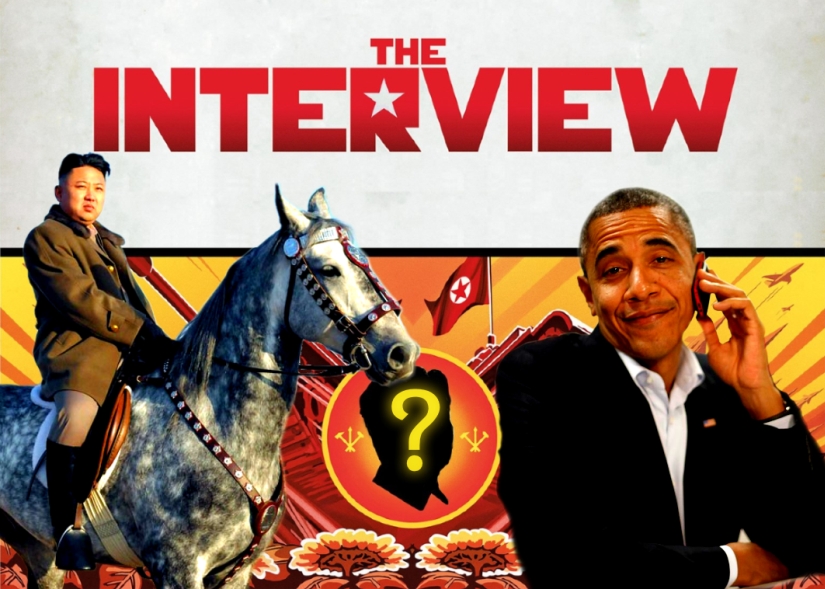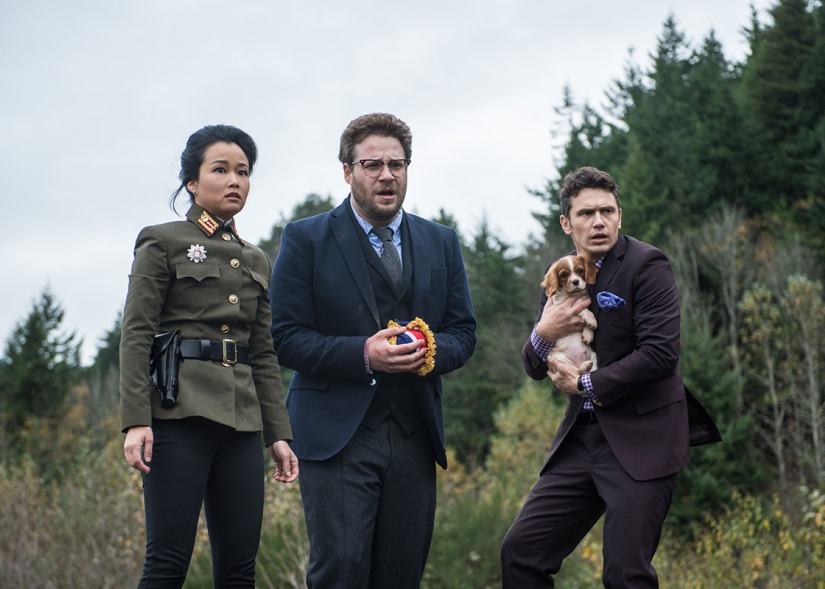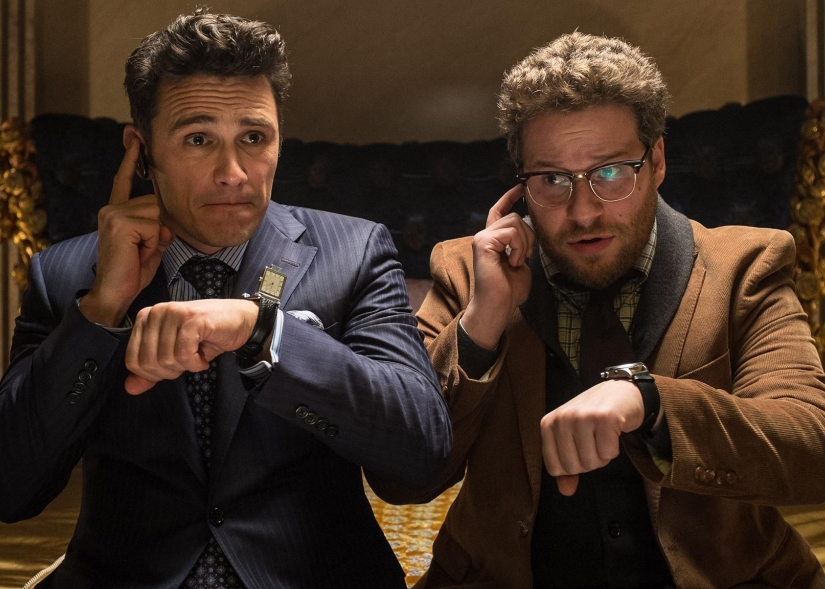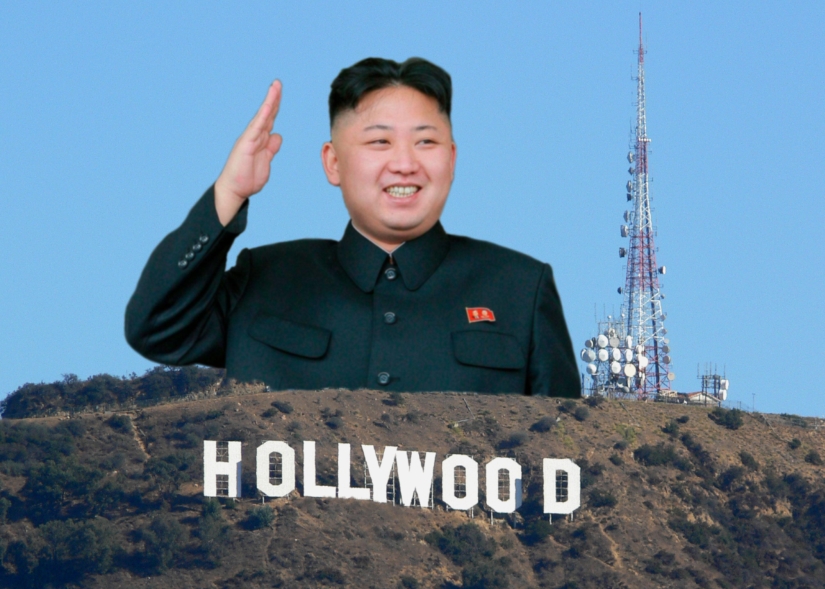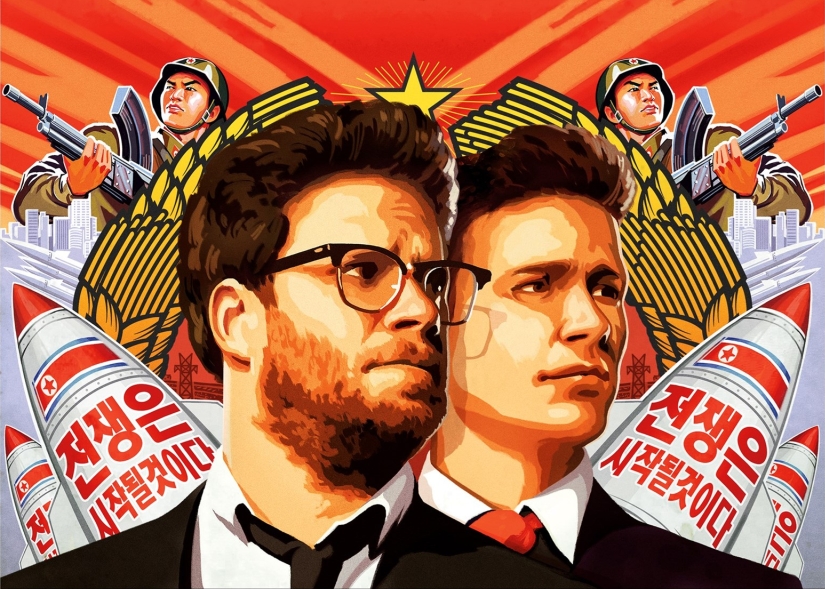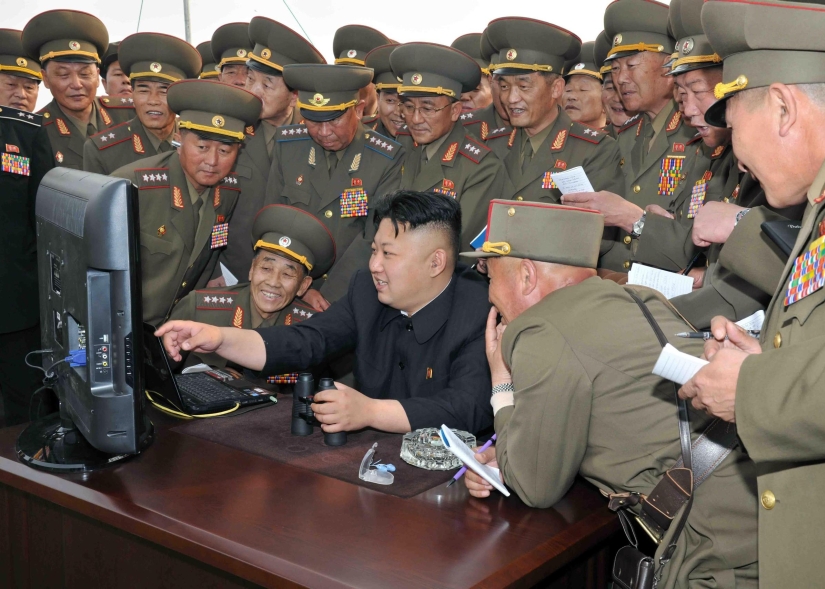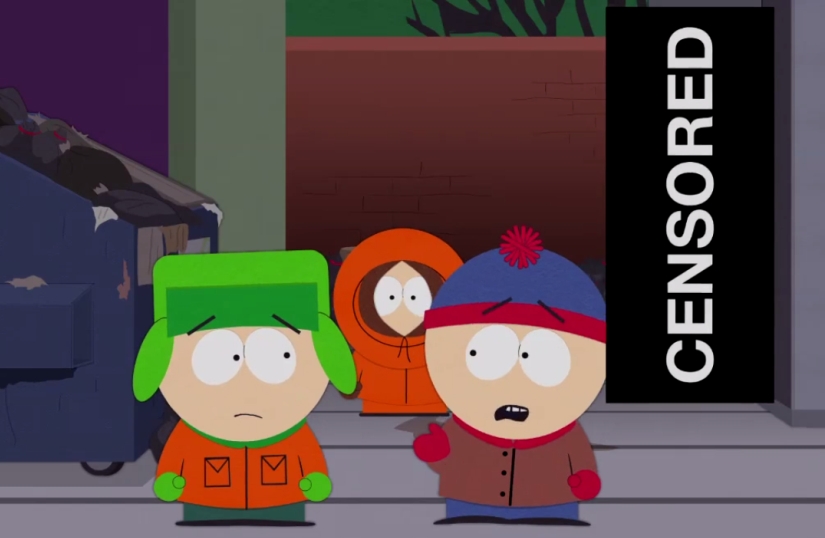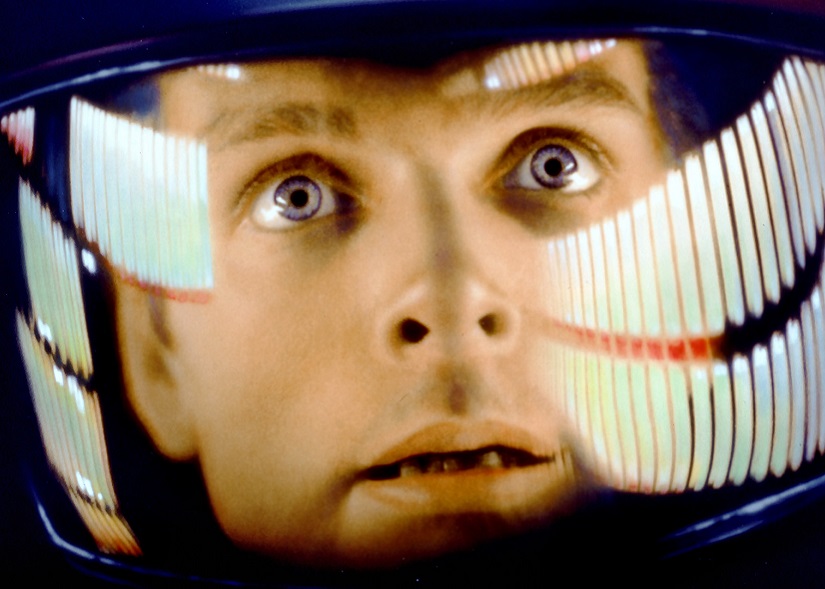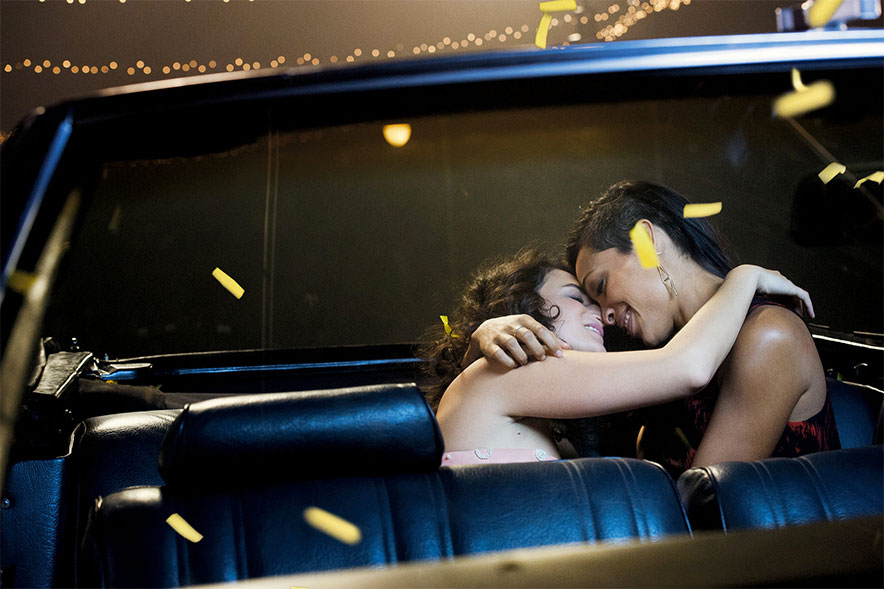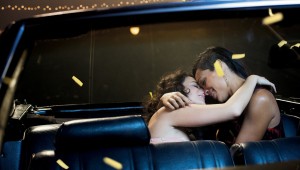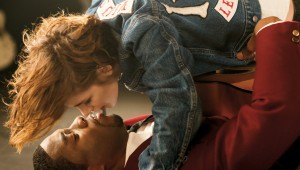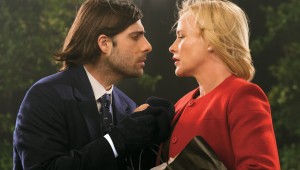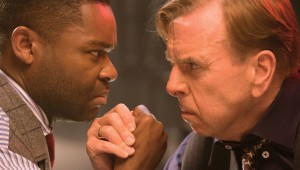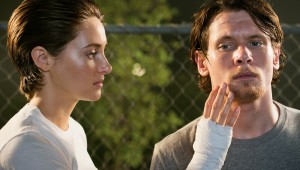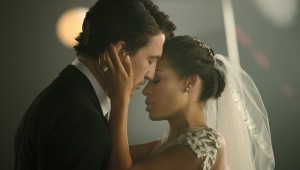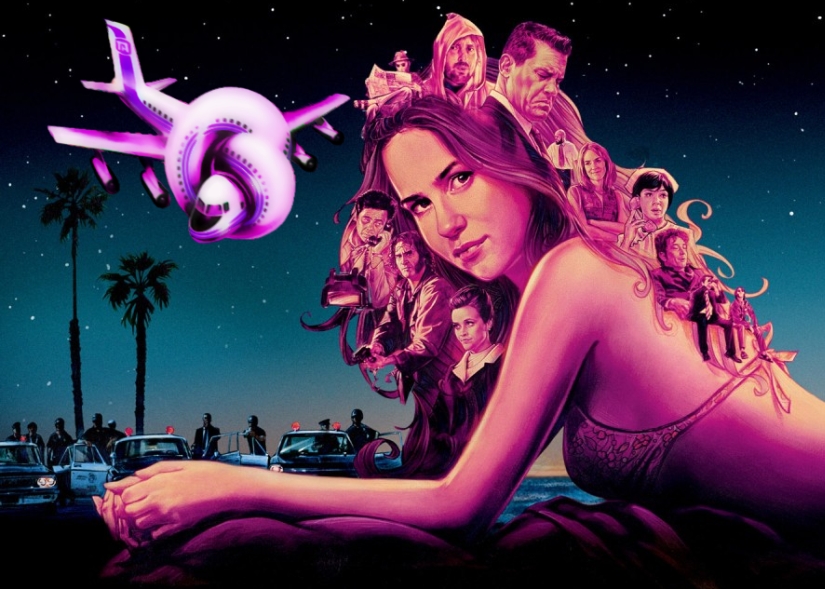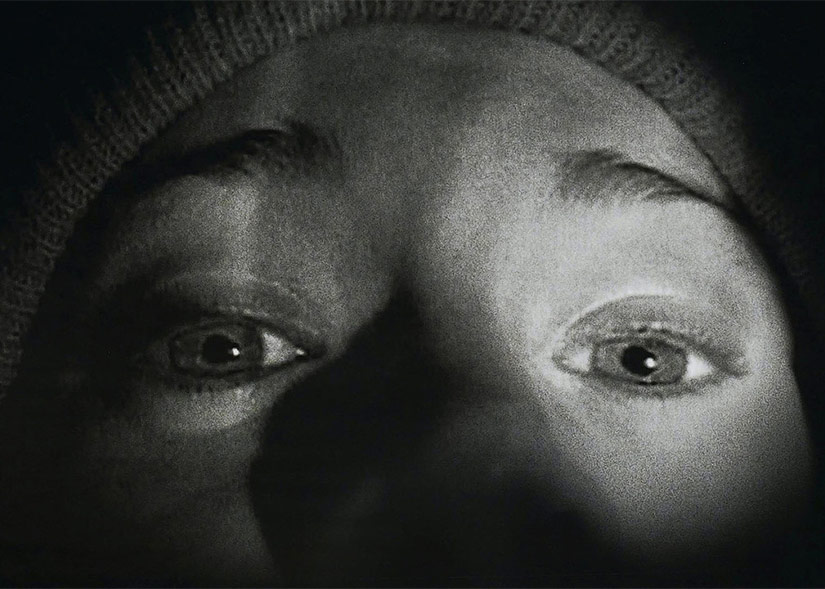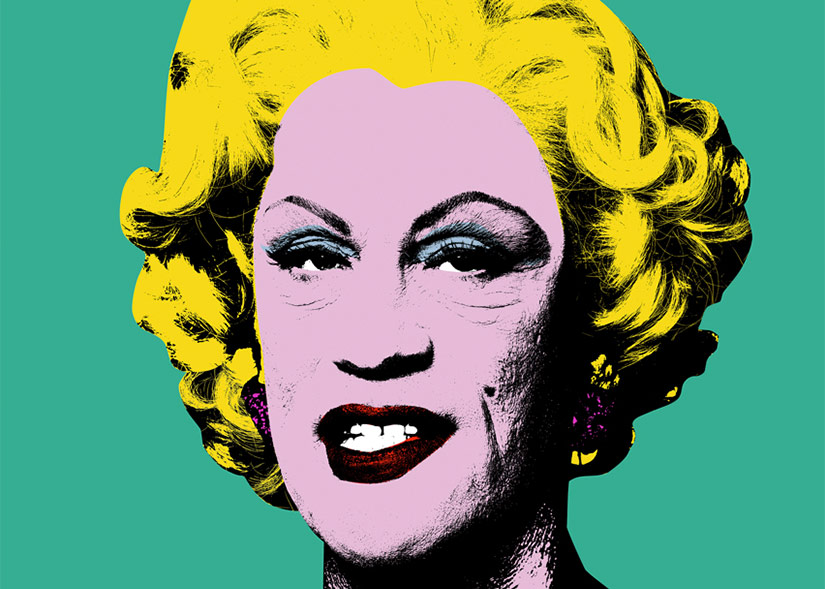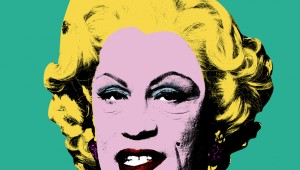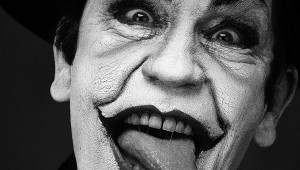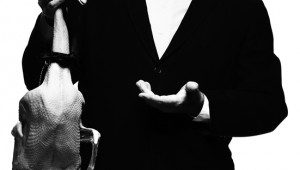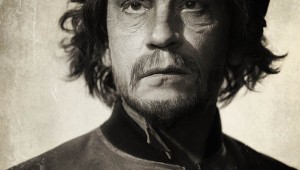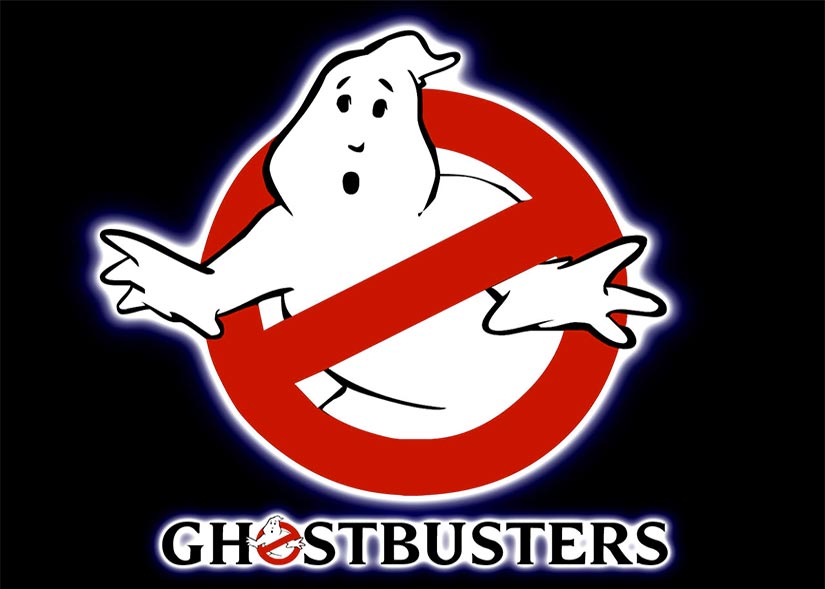The Uncanceled Interview: Obama Weighs In, Sony Backtracks, and Everything Gets Even Weirder
What a difference a few days make.
On December 17th, Sony canceled the Christmas release of The Interview, fearing further damage and information leaks from hackers. At that time, Sony implied that they had no plans to release the film at all, including on DVD, Blu-ray, or VOD. Even symbolic screenings of Team America: World Police were canceled by Paramount out of fear of retaliation by hackers.
Numerous commentators weighed in about Sony's decision, suggesting cowardice was the reason that they bowed to the demands of the hackers reportedly linked to North Korea. The hackers made an additional request that Sony erase all traces of The Interview's existence, which includes the official website, all online videos, and preventing the leak of pirated copies online.
President Obama weighed in on the matter during a year-end press conference on December 19th, saying he felt that Sony had made a mistake in canceling The Interview's release. "We cannot have a society in which some dictator some place can start imposing censorship here in the United States," Obama said. "Because if someone is able to intimidate folks out of releasing a satirical movie, imagine what they start doing when they see a documentary they don't like, or news reports don't like. Or even worse, imagine if producers and distributors and others start engaging in self-censorship because they don't want to offend the sensibilities of somebody whose sensibilities probably need to be offended."
And then, after some waffling and dithering, Sony decided to uncancel The Interview, releasing it in select theaters as well as various online platforms.
The Interview played on just 331 screens across the United States. Two other high-profile Christmas new releases, Into the Woods and Unbroken, played on 2,440 and 3,131 screens, respectively; the critically acclaimed Selma opened on just 19 select screens. According to Box Office Mojo, The Interview made $2.8 million in theaters during the long weekend.
The Interview fared much better online. Deadline reported that The Interview made $15 million through online rentals and sales. Sony estimated that there were 2 million rentals or purchases made through YouTube, Google Play, Xbox Live, and the website SeeTheInterview.com. Of course, The Interview was also illegally downloaded 750,000 times on Christmas Day alone. One assumes the number of legal and illegal watches online have to be about the same by now.
While reviews of the film continue to be mixed—the symbolic 10/10 user rating on IMDB just a week and a half ago has since dipped down to 7.7/10 following the film's release—the impact of this cultural moment is still so strangely resonant. There was no 9/11-style violence in any of the 331 theaters that screened the film, unless singing Lee Greenwood's "Proud to Be an American" is considered an act of terrorism. And while the money made so far doesn't cover half of the film's budget, there is a potential for further day-and-date digital releases of certain films in the future. Maybe those films can get some free publicity from North Korea.
While the North Korean government still denies involvement with the Sony hack, they are extremely upset with the film's release. (Earlier in the year, they declared The Interview an act of terrorism and and act of war, after all.) There have recently been country-wide internet outages, which North Korea blames on the United States, and they may not be wrong since Obama suggested there'd be some form of measured response to the hacking. On December 27th, North Korea's National Defense Commission issued a statement calling President Obama "the chief culprit" behind the The Interview's eventual release. The statement continued with the following not-so-veiled racist remark: "Obama always goes reckless in words and deeds like a monkey in a tropical forest."
In an odd example of the Streisand effect in full effect, however, the North Korean government's months of outrage over The Interview has made its own oppressed citizens hungry for the film. Screen Rant ran a piece stating that North Koreans are currently paying as much as $50 on the DVD black market for pirated copies of The Interview. For perspective, most pirated DVDs in North Korea run about 50 cents. Foreign media has increasingly become problematic for the North Korean regime, as films and television shows from abroad are showing its citizens greater prosperity and different ways to live (i.e., not abject poverty in a totalitarian dictatorship).
But maybe the most fascinating part of this post-release phase of The Interview are the doubts about the official story of the Sony hack. Whether these suspicions are warranted or a kind of foil-hat-trutherism, a number of internet security experts feel that North Korea might not have been responsible for the hack. Even before The Interview was canceled, I recall seeing a security expert on the news suggest that an angry Sony employee was the more likely culprit. A long-term inside job makes sense simply given the amount of information released and the nature of the hack. Much of the focus from those who doubt the FBI's story is now on someone identified as "Lena," who worked for Sony in Los Angeles for 10 years and is associated with the Guardians of Peace.
Everything continues to become curioser, and all because of a dick-joke movie. Again, the real-world happenings around The Interview prove to be far more fascinating than the events depicted in The Interview. I can't wait for the documentary.
The Canceled Interview: Sony Bows to Hackers, North Korea Wins, and No One is Laughing
In an alternate universe, The Interview was released on Christmas to so-so reviews and modest business; it was beaten on opening weekend by Into the Woods. After four days of post-release thinkpieces and three weeks of diminishing box office returns, The Interview was forgotten.
But we live in a strange world and interesting times.
The Interview was a disposable dude-bro movie that would have had as much cultural impact as a fart in an empty elevator. But because of the hacks linked to North Korea and threats of 9/11-style violence against movie theaters, Sony canceled the movie's release, which includes DVD/Blu-ray and VOD. The Interview is now much more. It's an emblem of Kim Jong-Un's bizarre victory, and a freak American symbol for freedom of expression and corporate cowardice. But more than that, The Interview has also offered us a frightening glimpse into the potential power of cyberterrorism.
Movies have lampooned actual and fictional world leaders before, like Kim Jong-Il in Trey Parker and Matt Stone's Team America: World Police, Charlie Chaplin's obvious Hitler analog in The Great Dictator, and the Gaddafi-like tyrant played by Sacha Baron Cohen in The Dictator. The Zucker-Abrahams-Zucker comedy team opened The Naked Gun with Frank Drebin beating up Idi Amin and Ayatollah Khomeini, among others; Abrahams would go on to target Saddam Hussein in the two Hot Shots! films—say what you will about Hot Shots! Part Deux, but Saddam is the highlight of that movie.
People have also attempted to use their power to block the release of movies. Most notably, William Randolph Hearst tried to bury Citizen Kane when he learned that he was a primary influence for the character Charles Foster Kane. Hearst refused to run ads for the film in his newspapers, used his publications to question Welles' patriotism, and exploited connections in Hollywood to block theaters from showing Citizen Kane. Studio execs sympathetic to Hearst and led by MGM's Louis B. Mayer even offered to buy all prints and negatives of Citizen Kane in order to burn them.
Which is what makes this situation more absurd. The Interview—a movie that is likely mediocre-at-best if these reviews compiled at Criticwire are any indication—is now a symbol, and it's been elevated (for now) to share an odd cultural conversation space alongside Citizen Kane and The Great Dictator. There are thinkpieces all over the internet (like this one) about the movie as a moment signifying something important rather than a mere vehicle for Seth Rogen and James Franco to make dick jokes. On IMDB, The Interview has a 9.9/10 as a purely symbolic gesture, one that makes it a better-rated movie than Citizen Kane and The Great Dictator. As Alec Kubas-Meyer joked over at Flixist, "Couldn't the terrorists have chosen a more meaningful film?"
For the first time, a foreign power has dictated what Americans can watch on their own home soil, and simply because Kim Jong-Un finds something offensive. (Let's temporarily shelve the conversation about good taste, bad taste, propriety, and their relation to comedy for another day.) And to think that the cyberattack was ordered by North Korea of all places. Reports last night suggest that the actual hackers, the "Guardians of Peace," are based in countries around the globe, though likely working with Bureau 121, North Korea's government-sponsored cyber warfare unit. Whatever the arrangement, North Korea and the hackers are preying on raw American fear, and succeeding.
There's the threat of a terrorist attack on movie theaters. Nevermind that these threats aren't credible, and nevermind that these threats are unfeasible. Picture not a full-scale invasion like the remake of Red Dawn, but rather 9/11, and the Boston Marathon bombing, and the theater in Aurora, Colorado where James Eagan Holmes opened fire on the audience during The Dark Knight Rises; and tied up in the last example are Newtown, and Virginia Tech, and Elliot Rodger, and Fort Hood, and Columbine, and other mass shootings.
Far more important than the gossip of the leaked Sony emails is a genuine worry that everything is monitored and nothing is safe. This feeling is bolstered by the celebrity phone hacks, the Target credit card breach, and the revelations of Edward Snowden. Thousands of Sony employees have had their social security numbers, medical information, correspondence, and other personal info released. Who's to say anyone's safe, in person or online?
(This may also reveal Sony's own ineptitude. Perhaps the company learned nothing from the 2011 PlayStation Network hack.)
Ty Burr at The Boston Globe worried about the precedent that these events have set. He wrote, "Sony and the major exhibition chains have opened the door for any zealot or teenage hacker with mad skills to make all the threats and mayhem they want. This will not be the last such event." Already, the fear that prompted the cancellation of The Interview has claimed other victims. New Regency was adapting Guy Delisle's graphic novel Pyongyang into a film directed by Gore Verbinski and starring Steve Carrell. The film was canceled just the other day.
The Alamo Drafthouse and a number of other theaters planned to screen Team America in lieu of The Interview—a symbolic middle finger to North Korea accompanied by a hearty "Fuck yeah!" Paramount, the distributor of Team America, promptly banned the screenings from happening. Not only is a foreign power dictating what Americans can see on their home soil, the fear of reprisal by that foreign power is also dictating the kinds of films and symbolic gestures that Americans think they can make.
We should have the option to laugh about a tense and absurd situation like this because laughter is a form of release, and maybe a helpful one—like George Saunders wrote, humor is often "what happens when we're told the truth quicker and more directly than we're used to"—but we've been rendered humorless from abroad. This sort of reminds me of that "Imaginationland" three-parter on South Park where terrorists attack our imagination. Certainly people's imaginations are being turned against them to fear the worst, and in a sense the Guardians of Peace have also exploited America's failures of imagination with regard to cyberterrorism. The end result, at least immediately, is panic about our vulnerability and an uncertainty about our ability to act and how to act.
There's another South Park multi-parter to consider: "200" and "201." Parker and Stone caught flack for daring to depict Muhammad on screen. A small radical group called Revolution Muslim threatened Parker and Stone prior to the airing of "201." Revolution Muslim stated that the South Park creators might face violent retribution for their work, possibly murder like Dutch filmmaker Theo van Gogh. (Van Gogh was killed by a Muslim extremist because of Submission, a short film about violence against women in the Islamic world. Van Gogh's last completed film was 06/05, a fictional retelling of the assassination of Pim Fortuyn, a Dutch politician.)
Panic was high at the time, security was beefed up around Comedy Central offices, but they wound up airing "201," albeit heavily censored when broadcast. You can find the full script of "201" online as well an uncensored version of the episode. The moral the boys learn goes like this:
Kyle: You see, I learned something today. Throughout this whole ordeal, we've all wanted to show things that we weren't allowed to show. But it wasn't because of some magic goo. It was because of the magical power of threatening people with violence. That's obviously the only true power. If there's anything we've all learned, it's that terrorizing people works.
Jesus: That's right. Don't you see, gingers? If you don't want to be made fun of anymore, all you need are guns and bombs to get people to stop.
Santa: That's right, friends. All you need to do is instill fear and be willing to hurt people and you can get whatever you want. The only true power is violence.
It's funny because it's true.
Romanticism vs Enlightenment in 2001: A Space Odyssey and Interstellar
2014 has been a great year for sci-fi. Guardians Of The Galaxy proved one of Marvel's biggest hits to date despite starring little known characters and lacking a big star name among the cast; Luc Besson's affably bonkers Lucy and Jonathan Glazer's chillingly impenetrable Under The Skin saw Scarlett Johansson build up a fine run of form in the genre after voicing a sentient, amorous operating system in 2013's Her; X-Men: Days Of Future Past made time travel an integral part of the X-movie universe; Tom Cruise suffered his own Groundhog Day in the middle of an alien war in Edge Of Tomorrow, and the Ethan Hawke-starring Predestination received plaudits for its integration of gender politics into an otherwise fairly rote time travel narrative.
Perhaps the biggest and most interesting event of the 2014 sci-fi revival was Christopher Nolan's Interstellar, standing out not only for being a rare original blockbuster in a galaxy of comic book franchises, but also its unashamed exploration of 'hard' sci-fi concepts such as time dilation, relativity and interstellar travel. If anything, the movie is at its least interesting when making concessions to the mainstream audience's supposed expectation of action: Matt Damon's cameo feels out of place and entirely unnecessary, seemingly existing only to interject big set-pieces into a movie which had previously succeeded admirably without them. Just as The Matrix and Nolan's earlier Inception disproved the notion that audiences are turned off by big ideas in their popcorn entertainment, Interstellar's success (currently sitting at a $622m return on its $165m production budget) is a triumph for all of us crossing our fingers that the recent sci-fi revival will be allowed to explore the genre's more intellectual side alongside such pulpy delights as Guardians and Star Wars.
One of Christopher Nolan's biggest inspirations for Interstellar, Stanley Kubrick's 2001: A Space Odyssey, also saw a limited re-release in the UK last month. While Nolan's debt to the 1968 classic is clear, watching them both in such close proximity reveals fascinating differences between the philosophies underpinning each movie. Interstellar is unabashedly intellectual, with a big deal having been made in the build-up to the film's release of its scientific accuracy (theoretical physicist Kip Thorne consulted on the writing) and of two academic papers being written on the back of its simulated models of black holes. Within the movie itself, many of the characters' biggest challenges revolve around established scientific principles, such as how long to spend visiting a planet subject to extreme time dilation (that is, where time moves much more slowly on the surface of the planet than in its orbit) and whether it is possible to communicate through a black hole's event horizon (the point at which nothing, not even light, should theoretically be able to escape its gravitational pull).
Interstellar's universe is firmly in thrall to the idea that with the right set of calculations, there is no phenomenon too great for humanity to catalogue and control. As with its occasional lapses into thriller storytelling, the times when the movie recants on its firm belief in scientific absolutism are the moments when it feels at its least sincere. Anne Hathaway's speech about love being the only force able to transcend time and gravity, foreshadowing the movie's aggressively saccharine ending, never feels like anything other than an attempt at emotional manipulation of the most brazen and cringeworthy variety, a misjudged bid to correct the perception that Christopher Nolan's films are all head and no heart in an otherwise defiantly intellectual movie.
2001: A Space Odyssey also has a reputation for being cold, complex and distant, though where Interstellar occasionally wobbles in its devotion to science over sentiment, Kubrick's movie is far more subtle and powerful in conveying the emotional weight of its story. If Interstellar at its best is a movie firmly rooted in an Enlightenment way of thinking, worshipping reason and observation as humanity's greatest tool for conquering the universe, 2001 sets out its stall firmly in the opposite camp. The universe Kubrick portrays is vast, fearsome and beyond comprehension; the only truth revealed by the human capacity for perception and analysis is how resoundingly limited those two things are when faced with the mesmerising grandeur of space and time. Knowledge is not imparted by reason, but by the random interjection of unknowable outside forces, represented in the movie in the shape of a flawless black monolith. 2001 is the rare sci-fi movie with its philosophy rooted firmly on the side of the Romantics.
It is untrue to suggest 2001 is an unemotional film for its lack of interest in love and human connection. In fact, the experience of watching Kubrick's movie is a deeply emotional one. Few released before or since have been so overwhelmingly powerful at conveying awe at the horror and the beauty of the infinite unknown. It is a film deeply in love with humanity, or more specifically its curiosity and persistence in the face of things it will most likely never be capable of rationalising or reaching. It celebrates humanity's never-ending desire to grow and progress, so jaw-droppingly represented by that phenomenal cut from a bone flying through the air to a spacestation sweeping through space, as well as the idea that in an infinite universe, the capacity for growth must also be infinite, never achieving an end goal but never stopping either.
[youtube id="qtbOmpTnyOc"]
The later novels in Arthur C. Clarke's Odyssey series lost much of their power as they explored in greater depth the nature and origin of the black monoliths and the forces that created them. Kubrick's determination that his 2001 be bereft of such explanations - even if Clarke, in fairness, nevertheless retained a fair amount of mystery in his works - is, I think, one of the key factors behind why it remains such an enduring classic. The stunning visuals and classical soundtrack certainly help, but that dedication to the importance of asking questions ahead of getting answers is one compelling on a near-subconscious level, challenging its viewers to face the awareness of how tiny and insignificant our lives and our world really are, but also find comfort in what a beautiful and somehow encouraging thing that can be. Unlike Interstellar's cast of intellectual titans, never wrong in their reasoning or perception, 2001 posits that it is that smallness and those flaws denied Nolan's characters which define us and push us forward. It is telling that the malfunctioning artificial intelligence HAL attributes a miscalculation to human error, even if it misunderstands that the error was in fact in the idea that humanity could ever build a flawless machine when it is itself a race of imperfect beings.
2001's Romantic philosophy is surely a product of the era in which the film was made. Its release came a little over a year before Neil Armstrong became the first man on the moon in 1969, while the post-Summer Of Love, late '60s infatuation with hallucinogenic drugs and the collapse of social inhibitions marked a period in modern history when people were experimenting with expanding their minds and vision beyond anything which had ever been tried before, a process both scary and wonderous at the same time. Interstellar, on the other hand, arrives at a time when humanity has seen the often terrible consequences of its decisions, actions and inactions come home to roost, when the ability to control and make sense of our place and purpose feels increasingly distant and increasingly important to achieving a stable, prosperous future. Interstellar tries to be reassuring, telling us that total control of our circumstances is only a matter of looking at things in the right way, but in doing so reduces the size of its universe to within the reach of the human mind and perpetuates a misapprehension which may have been a key factor in us reaching this point in the first place. Dated though some of its aesthetics may be - check out that Pan Am space shuttle! - 2001 instead offers the opposite treatise, that it is human perception which is inherently limited and the universe which is grand and limitless. For all Interstellar's posturing on the power of love and the comforts of total knowledge being within reach if only we could think a little bigger, 2001 eschews easy sentiments and answers, but in doing so feels profoundly more honest and human.
Elaine Constantine's 9 Kisses Features Lip-Locked Actors
The New York Times has a long-standing tradition of gathering the year's best actors and actresses for a quick photo shoot and a short video take showing off their chops. However, the outlet changed the formula for this year, pairing them together for the warmest of embraces: the on-screen kiss. Tapped to capture the festivities is Elaine Constantine, and as you can see in the short and photo spread below, the pairings range from romantic to the rambunctious.
9 Kisses, as the collection is called, features Benedict Cumberbatch (Doctor Strange), Reese Witherspoon (Inherent Vice), Steve Carrell (Foxcatcher), Laura Dern (The Fault in Our Stars), Rosario Dawson (Cesar Chavez), Jenny Slate (Obvious Child), Chadwick Boseman (Captain America: Civil War), Kristen Stewart (Camp X-Ray), Patricia Arquette (Boyhood), Jason Schwartzman (Listen Up, Philip), David Oyelowo (Selma), Timothy Spall (The Love Punch), Jack O'Connell (300: Rise of an Empire), Shailene Woodley (White Bird in a Blizzard), John Lithgow (Interstellar), Julianne Moore (Don Jon), Gugu Mbatha-Raw (Jupiter Ascending), and Miles Teller (Whiplash).
[youtube id="XqAJEh6Tu-c"]
[via New York Times]
Inherent Vice is like Airplane? Surely You Can't Be Serious
The first hints of what Inherent Vice was like came in July. Paul Thomas Anderson screened his new movie months early for select writers and industry people, and word got out about what they saw. Various impressions were compiled by Kevin Jagerrnauth over at The Playlist, including the following insider assessment: "It's BONKERS—weird, weird, weird. It made me laugh out loud several times, but not in the ways you might expect. The humor is not so much Boogie Nights, as I think a lot of people are expecting. For reals, it tips into, like, Zucker Bros.-level gags and broad humor. But, obviously, mixed with his other sensibilities. Strange, beguiling tone." (The Big Lebowski and The Long Goodbye were mentioned as well, which makes sense for an LA noir story about a stoner private detective made by an unabashed Robert Altman fan.)
When I reviewed Inherent Vice at Unseen Films during the New York Film Festival (NYFF), I mentioned seeing Anderson in conversation with festival director Kent Jones. Anderson showed clips of work that informed his approach to Inherent Vice. He opened with Police Squad!, the short-lived 1982 show by Jim Abrahams, David Zucker, and Jerry Zucker that would spawn The Naked Gun series. Zucker-Abrahams-Zucker were also responsible for the oddball cult comedy The Kentucky Fried Movie and the classic spoofs Airplane! and Top Secret!. Anderson said that he didn't try to redo Police Squad! with Inherent Vice, but he found the spirit of the work both liberating and encouraging as he was beginning the project. It makes sense to look to madcap comedy when tackling a Thomas Pynchon novel—he can be complicated, but he's often funny and always entertaining.
[youtube id="ixljWVyPby0" align="center" autoplay="no" maxwidth="829"]
A number of reviews of Inherent Vice have said the film is like a Zucker-Abrahams-Zucker movie.
But it's really not.
There's a difference between influence and likeness, and some of the comparisons with Zucker-Abrahams-Zucker are grossly overstated. Inherent Vice is its own animal that moves at its own pace and with its own rhythm, and not necessarily the rhythm I get when reading Pynchon.
Watch a clip from Airplane! or The Naked Gun and you're getting a gag every 10 seconds, if not faster, and often more than one gag. Coming at all angles and different levels,the best Zucker-Abrahams-Zucker comedy is a meticulously crafted gag machine. One scene may be a reference to another film or a genre trope, and if the reference isn't funny on its own, there's usually wordplay and snappy verbal exchanges, and if that's not enough, there's usually a sight gag somewhere in the frame that winds up being funny; and if none of that was funny, it's on to the next gag as if the previous one didn't bomb. The zaniness is built on a blend of perfect timing and seemingly reckless velocity.
[youtube id="UbyrQFgRuHA" align="center" autoplay="no" maxwidth="829"]
Inherent Vice, by comparison, doesn't have the gag-every-10-seconds aesthetic. The trailers, maybe, but not the film itself, with its long takes and whispery dialogue, and wigged-out vibe rather than outright zaniness. It's a different kind of movie with a different kind of sensibility—paranoia rather than anarchy, and disillusionment rather than playfulness, which figures for a movie about the children of the 1960s realizing that they blew it and that the battle for the American soul was already lost.
To put it another way, if Zucker-Abrahams-Zucker is the comedy equivalent of Cliff Friend and Dave Franklin's "The Merry-Go-Round Broke Down" and Raymond Scott's "Powerhouse", Anderson's Inherent Vice is like Can's "Vitamin C" and Neil Young's "Journey Through the Past." (Both are on the film's soundtrack. More on Young a bit later.)
Police Squad! may have given Anderson the initial push, but Anderson is definitely the person pedaling the bike, which is why Inherent Vice has much more in common with The Master than The Naked Gun. While the fall of the counterculture is at the heart of Inherent Vice, Anderson uses the novel as a way to continue his exploration of relationships between men in opposition, sometimes diametrically. It was Daniel Plainview and Eli Sunday in There Will Be Blood, and it was Freddie Quell and Lancaster Dodd in The Master. Here it's hippie-dippie Doc Sportello (Joaquin Phoenix) and straight-edged Bigfoot Bjornsen (Josh Brolin), and it's also the hopey-dopey 1960s vs. the disillusionment of 1970s.
Part of the overstatement of the Zucker-Abrahams-Zucker influence is the parroting that people do when they hear an informed opinion. We've all at one time or another taken received perceptions as our own without actually processing them, and that may be at play here. Yet I think a larger part of the overstatement has to do with the need to find familiar footholds in a work that, like the insider mentioned at the beginning, is strange and beguiling in tone.
Anderson's combined a number of influences in the film; other clips shown during the NYFF conversation included Alex Cox's The Repo Man, Neil Young's Journey Through the Past, Alfred Hitchcock's North by Northwest, Quentin Tarantino's Jackie Brown, and the music video for "Oblivion" by Grimes directed by Emily Kai Bock. Different sources, different tones, and different ways for Anderson to get in the groove to make his movie, but it's purposeful: even though Inherent Vice isn't Pynchon's most difficult novel, it takes footholds in the familiar to explore seemingly unfamiliar territory like the writing of Thomas Pynchon.
And maybe that's why I get a different vibe when I read Pynchon than what Anderson gives in his adaptation (which is missing all of Pynchon's fake surf rock songs, sadly). When I read Pynchon, I usually think of The Marx Brothers and their zany, breakneck pace, but filtered through a mind obsessed with grand conspiracies, forces of opposition, the unending conflict between the preterite (the common folk) and the elect (the elite), and how to negotiate this world with that sort of worldview. Anderson gets a lot of that too, but to adapt is to give one's own take on something, and Anderson's take is filtered through his footholds and his obsessions. If it takes familiar footholds to explore the seemingly unfamiliar, it might take personal obsessions to adapt and reinterpret the work of an obsessive.
[youtube id="73oO2XA_ihk" align="center" autoplay="no" maxwidth="829"]
So rather than Zucker-Abrahams-Zucker comparisons, the real heart of Inherent Vice may be Young's wayward 1972 film Journey Through the Past, and perhaps Young's dark phase with "The Ditch Trilogy." Anderson showed a clip from Journey in which Young drives his vintage car into the woods, gets out, smokes a joint with his girlfriend, eats some strawberries, mumbles something, and then they get back in and drive off. It's a long single-take, a sunny day; it's a simpler time, and sort of beautiful because it's so worry-free and purpose-free. There's a scene in Inherent Vice over which Young's song "Journey Through the Past" plays, and it's one of the most memorable and moving parts of the movie, because it's about a simpler time, worry-free and purpose-forgotten, and there's just that residual love of the missing past before the future came and screwed everything up. In the past, an open lot, a dream; in the present, the dream's been replaced by the most vulgar kind of progress—a skyscraper.
While Pynchon's fake songs aren't present in Inherent Vice, Anderson brings two Neil Young songs that suit his sensibilities as a filmmaker, and that suit the film's overall sensibility. I've written that the Anderson who made Magnolia probably would have made a more Pynchon-esque film than the Anderson who made The Master, and while I still think that (and that Magnolia feels more Pynchon-esque to me than Inherent Vice), I have to admit that the old Anderson isn't the man in the present. And I should be groovy with that.
I want to rewatch Inherent Vice and listen to Neil Young's output during the first half of the 1970s, because that may be one of the ideal footholds into this film, and while Young's music may not be in the novel Inherent Vice, there are shared sensibilities in scope. The disillusionment with the 60s was there in 1972's Harvest ("The Needle and the Damage Done" was written for Danny Whitten of Crazy Horse after he died of an overdose). From "The Ditch Trilogy," the albums are titled Time Fades Away, On the Beach, and Tonight's the Night. Those titles taken together seem to hint at the shape of Inherent Vice with regard to the movement of time, and while the Pynchon in my head plays differently, Anderson's covering Pynchon in the style of Neil Young (among others), which is probably just the way it sounds in his head.
[Contest] Celebrate Halloween with a Free Digital Copy of The Blair Witch Project
With Halloween just a few days away, what better way is there to celebrate one of the best holidays of the year with a contest? When The Blair Witch Project was released back in 1999, it almost single-handedly spawned the "found footage" sub-genre, leading to the in flux of similarly-shot films that still flood movie theaters 15 years later. Lionsgate has produced and distibuted a large number of amazing horror films over the years, including The Blair Witch Project, Cabin Fever, Cabin in the Woods, The Descent, and The Blair Witch Project co-director Eduardo Sanchez's latest film, Exists. Get into the Halloween mood by watching short clips from the aforementioned Lionsgate Horror films in the small widget below!
We're offering one free UltraViolet digital copy of The Blair Witch Project to one lucky reader. There are three different ways to enter:
1. Tweet us at @RubyHornet your favorite Lionsgate Horror film with the #LionsgateHorror hashtag. (ex: "Cabin in the Woods" is my all-time favorite #LionsgateHorror film, @RubyHornet!"
2. Share your favorite Lionsgate Horror film on this post on our Facebook page.
3. Post a screenshot of your favorite Lionsgate Horror film on Instagram, then tag us along with the #LionsgateHorror hashtag.
You can enter as many times as you like. One winner will be chosen at random on November 14th at 11:59pm CST. Good luck!
Each household is only eligible to win One (1) Digital Download code for The Blair Witch Project via blog reviews and giveaways. Only one entrant per mailing address per giveaway. If you have won the same prize on another blog, you will not be eligible to win it again. Winner is subject to eligibility verification.
Sandro Miller's Malkovich, Malkovich, Malkovich: Homage to Photographic Masters
John Malkovich is known for his transformative roles that call for him to play essentially any role. Teaming up with photography Sandro Miller, Malkovich channeled pop culture icons of yesteryear for a photo Miller's latest photo series, Malkovich, Malkovich, Malkovich: Homage to Photographic Masters. In the series, Malkovich re-enacts some famous (and not-so famous) photos of various icons from Hollywood, across art, and even politics, including Jack Nicholson's portrayal of Joker in Batman, Andy Warhol's pop-art painting of Marilyn Monroe, revolutionary Che Guevara, and more.
Check out some of the photos below, and be sure to check out the full exhibition on the Catherine Edelman Gallery website. The exhibition will be on display from November 7th to January 31st. Chicagoans, I highly suggest checking this one out in person!
[via Catherine Edelman Gallery]
[Dream Cast] Five Actresses Who Should Be Considered for Ghostbusters
The rumors of an all-female Ghostbusters reboot have been around for months now, but with Peter Venkman himself, Bill Murray, supporting the idea and even offering his own cast suggestions, I think the possibility could be very real. After all, we're experiencing a new wave of comedy films that prove that female-driven comedies can be successful both critically and commercially. While I absolutely love Murray's suggestions of Kristen Wiig, Emma Stone, Linda Cardellini, and Melissa McCarthy, five other actresses instantly came to mind.
Read on as I suggest my dream cast for an all-female Ghostbusters reboot.

